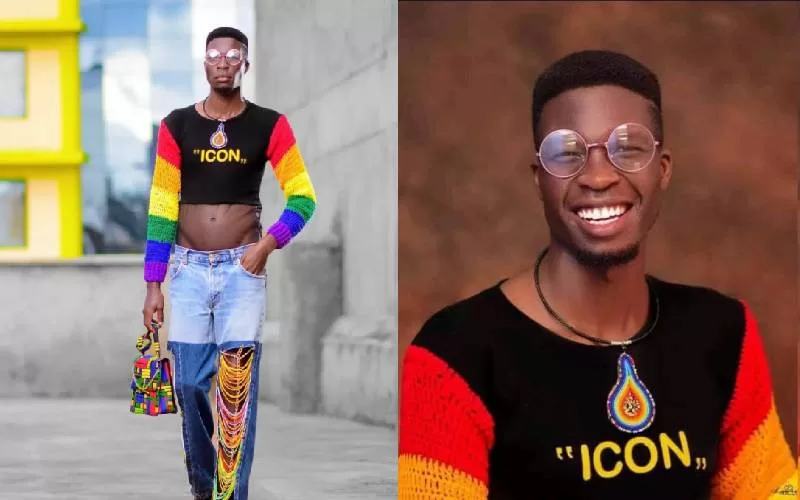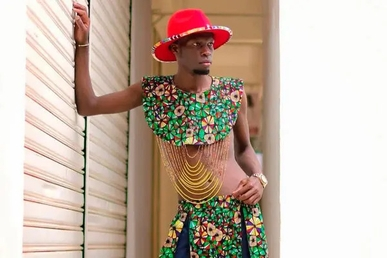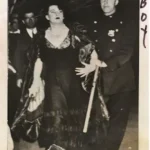
The high-profile murder case of LGBTQ activist and fashion designer Edwin Kiprotich Kiptoo, also known as Chiloba, has intrigued Kenya and gained international attention due to its tragic implications for LGBTQ rights and safety in the country.
The case, which has progressed steadily over the last year, reached a significant milestone as the state concluded its prosecution against the primary suspect, Jacktone Odhiambo. The court is now set to determine whether the suspect will face defense proceedings or be acquitted.
The Crime that Shocked Kenya
The gruesome discovery of Chiloba’s decomposing body on January 3, 2023, shocked the nation. His body, stuffed in a metallic box and dumped along the Kipkenyo-Kaptinga road in Kapseret Sub-County, was found about 10 kilometres from Eldoret City. Police investigations quickly identified Odhiambo, a close associate and alleged lover of Chiloba, as the primary suspect.
Chiloba, a 26-year-old student at the University of Eldoret and a prominent LGBTQ activist, had been advocating for the rights and visibility of the LGBTQ community in Kenya, where homosexuality remains taboo mainly and is criminalized.
The Prosecution’s Case
Throughout the trial, the prosecution built a strong case against Odhiambo, relying on physical evidence and witness testimony. A total of 22 witnesses were called to testify, each providing crucial information that linked Odhiambo to the crime scene and Chiloba’s murder.
Among the key pieces of evidence was the testimony from government chemists, including Polycarp Kweyu, who confirmed the presence of Odhiambo’s DNA at the crime scene. DNA samples from Chiloba’s body, including anal swabs, were found to contain spermatozoa, which matched Odhiambo’s DNA. This discovery, coupled with Odhiambo’s DNA on various items such as bedsheets and clothing recovered from the scene, was central to the prosecution’s argument.
In addition to DNA evidence, a toxicological analysis conducted by Jane Waya, another government analyst, confirmed that no toxic substances were detected in Chiloba’s body, ruling out poisoning as a cause of death. Instead, the autopsy report provided by Chief Government Pathologist Dr. Johansen Oduor revealed the horrifying details of Chiloba’s death.
The Autopsy Report
Dr Oduor’s post-mortem findings presented in court painted a disturbing picture of the brutality Chiloba endured before his death. The autopsy, conducted on January 11, 2023, showed that Chiloba had been smothered to death. Three socks were found stuffed deep inside his throat, and a leg from a pair of jeans was tightly tied around his mouth and nose. These items had completely blocked Chiloba’s airways, leading to his death by asphyxiation.
The post-mortem also revealed additional injuries, including bruising on the inside of Chiloba’s upper and lower lips and on the left side of his tongue, which indicated the violent nature of the attack. His body had already begun decomposing by the time it was discovered, with his brain and kidneys showing advanced stages of decay.
Dr Oduor’s deposition was critical in establishing the cause of death as deliberate smothering, with the pathologist pointing out that the injuries were sustained before death. These findings supported the prosecution’s argument that the person who stuffed the socks into Chiloba’s throat and tied his mouth and nose intended to kill him. The post-mortem report was admitted as crucial evidence in the case against Odhiambo.
The prosecution’s case was further supported by testimony from Corporal Mercy Kathure, the lead investigating officer. Kathure recounted how she and her colleagues discovered Chiloba’s body after being alerted to the metallic box dumped along the roadside by a speeding car. The body was taken to the Moi Teaching and Referral Hospital mortuary, initially booked as unidentified. However, Kathure later learned through social media that the body belonged to Chiloba after a video surfaced showing him in the same clothes he was wearing at the time of his death.
Kathure’s investigation eventually led to the arrest of Odhiambo, who was the last person seen with Chiloba at a famous club in Eldoret before the murder. Witnesses confirmed that the two had been together on New Year’s Eve, raising suspicions that Odhiambo had been involved in Chiloba’s death. Furthermore, police reports indicated that Odhiambo had been cohabiting with Chiloba at the time of the incident, strengthening the case against him.
Odhiambo’s Defense
Despite the mounting evidence, Odhiambo has continued to deny the charges against him. His defence team has challenged handling the forensic evidence, questioning the chain of custody and how it was presented in court. They have argued that the DNA evidence was not properly secured and have maintained that Odhiambo had no role in Chiloba’s death.
The defence has also hinted at other potential suspects, but no evidence has been presented to support these claims. The court, presided over by Justice Reuben Nyakundi, has directed both the prosecution and defence to file their final submissions within two weeks, after which a decision will be made on whether Odhiambo will be placed on defence or acquitted.
Implications for LGBTQ Rights in Kenya
The murder of Edwin Chiloba has had far-reaching implications for the LGBTQ community in Kenya. Chiloba was not only a talented fashion designer and model but also a vocal advocate for LGBTQ rights in a country where same-sex relations are still criminalized under colonial-era laws. His death has reignited discussions about the safety of LGBTQ individuals and the pervasive homophobia that many still face.
International human rights organizations have called for justice in Chiloba’s case, with many using the tragedy as an opportunity to highlight the need for better protection of LGBTQ rights in Kenya. However, the case has also revealed the deep divisions in Kenyan society, with some conservative groups expressing little sympathy for Chiloba’s death due to his sexuality.
Chiloba’s friends, family, and supporters have continued to demand justice for his brutal murder, hoping that the outcome of the trial will serve as a turning point in the fight for equality and protection for LGBTQ individuals in the country.

The Road Ahead
The final ruling in the case has been scheduled for November 8, 2024, with the court expected to decide whether Odhiambo will stand trial for the murder of Chiloba or be acquitted. Regardless of the outcome, the case has left an indelible mark on Kenya’s social and political landscape, shining a spotlight on the dangers faced by LGBTQ individuals in a country where their rights are often suppressed.




